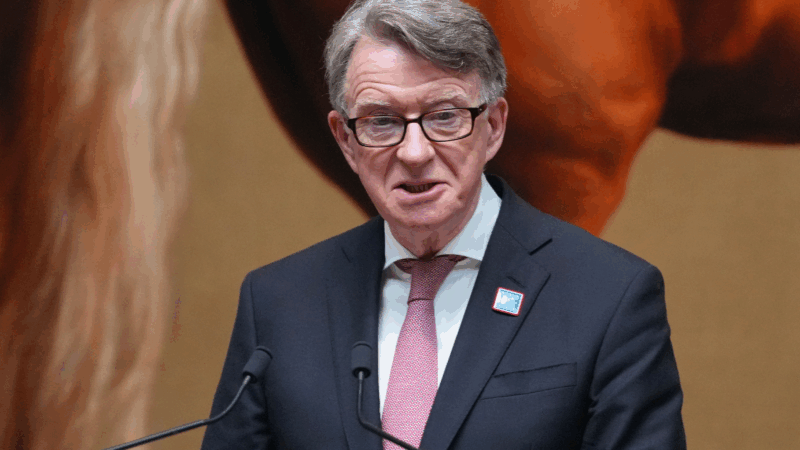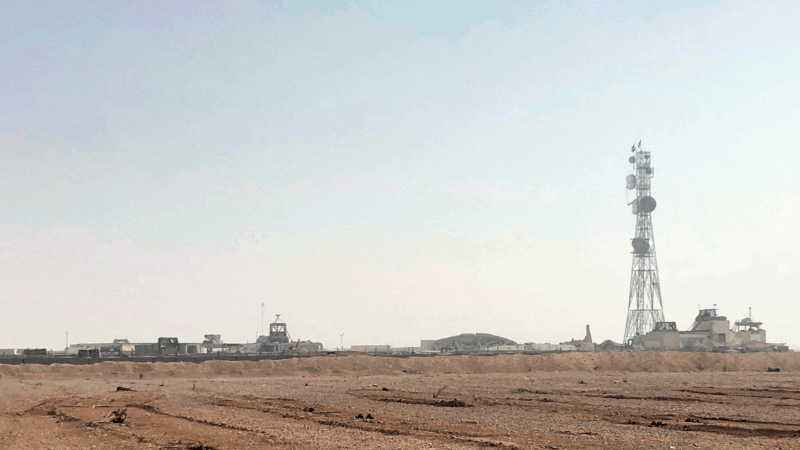Air Quality: Traffic
Mike Shattuck spends a fair amount of time in his car. There’s the daily commute to his office in Homewood and the hours he spends driving company executives around town. Shattuck is director of business development with the Birmingham Metropolitan Development Board.
“I’ve noticed in certain areas in downtown, especially at certain times in the evening when you can sit in traffic, but it appears at the time that it’s useless.”
To understand how traffic works, you go the city’s traffic engineering department. Birmingham has 700 signalized intersections. The computers at the traffic engineering office control 430 of those intersections. Software generates traffic light timing plans based on volume, block lengths, and travel speeds. The goal is to reduce the number of delays and CO2 emissions. Acting City Traffic Engineer Greg Dawkins says despite their best efforts, and the high-tech algorithms, lots of people complain.
“They want their one way to work and one way home from work to be all green. They’re looking at it as the best benefit for them and not the best benefit for the whole.”
“Everybody that drives is a traffic engineer.”
Senior traffic engineer Dennis Dickey has been with the city for 30 years.
“It is frustrating b/c we do try to make decisions based on sound engineering judgment. And nobody would question an engineer on how big a beam should be when he builds a bridge, but they will question a traffic engineer if he says the light needs to be green this long or there needs to be a stop sign or maybe there doesn’t need to be a stop sign.”
One frustrated motorist wrote the Birmingham News with his theory that city traffic engineers purposely make the lights slow so people will burn more gas, have to fuel up more often and, thereby, pay more gas taxes to the city. Conspiracy theories aside, Dickey says there’s a lot about traffic that most people don’t understand.
“A lot of people think there’s pressure plates in the road and there’s not. A long time ago, maybe 30, 40 years ago there was pressure plates used, but not any more.”
Some motorists also think if they flash their brights at a red light it will somehow signal the light to change. Not true! That thing that looks like a small sensor atop some traffic lights is actually a special sensor that will only detect strobe lights mounted on fire trucks. Dickey says there really is no way to trick the traffic lights into changing for you quicker, whether your motivation is saving gas money or saving the environment.
But wait! There is a bit of really high-tech hocus pocus that could make your daily commute quicker and more environmentally friendly. Liviu Iftode and his colleagues at Rutgers University have been working on what they call “vehicular computing”. Basically, they’re studying how car-to-car wireless communication could improve the timing of traffic lights. In the simplest system, microchips imbedded in cars or in drivers’ cell phones would tell a traffic light how fast the cars are going and where they’re located.
“But you can imagine, the flow of communication going the other way around. From the traffic light to the driver, informing the driver that for instance he’s not likely to not catch the next traffic light, so he needs to slow down earlier approaching the next intersection.”
For this to work, researchers would have to find a city willing to install and test the “smart system”, and Iftode concedes it’s a tough sell. Birmingham’s acting assistant traffic engineer Sedrick Rutledge agrees.
“There would be some liabilities involved in just coming in and being a test ground for something like that. I’m not sure Birmingham want to just jump into something that’s not a proven product.”
Still, Mike Shattuck, the economic development professional who spends so much time in his car, says it could be worth it.
“I think those are the things that we can work on as a community. These little things. The timing of the traffic lights, emissions testing and so forth. These little things that we can do to help clean our air and ultimately help us in recruiting more industry to the Birmingham area.”
For U.S. pairs skater Danny O’Shea, these Olympics are 30 years in the making
Danny O'Shea turned 35 at his first Olympics, after three decades of skating and two reversed retirements.
Want a mortgage for under 3% in 2026? Meet the ‘assumable mortgage’
Low mortgage rates from the COVID era might still be attainable for homebuyers, if they find the right house and have the cash.
Epstein files fallout takes down elite figures in Europe, while U.S. reckoning is muted
Unlike in Europe, officials in the U.S. with ties to Epstein have largely held their positions of power.
Four people on NASA’S Crew-12 arrive at the International Space Station
The crew will spend the next eight months conducting experiments to prepare for human exploration beyond Earth's orbit.
American speedskater Jordan Stolz wins second Olympic gold with 500-meter race victory
With the win, Stolz joins Eric Heiden as the only skaters to take gold in both the 500 and 1,000 at the same Olympics.
US military reports a series of airstrikes against Islamic State targets in Syria
The U.S. military says the strikes were carried out in retaliation of the December ambush that killed two U.S. soldiers and one American civilian interpreter.






